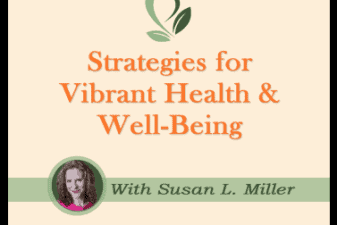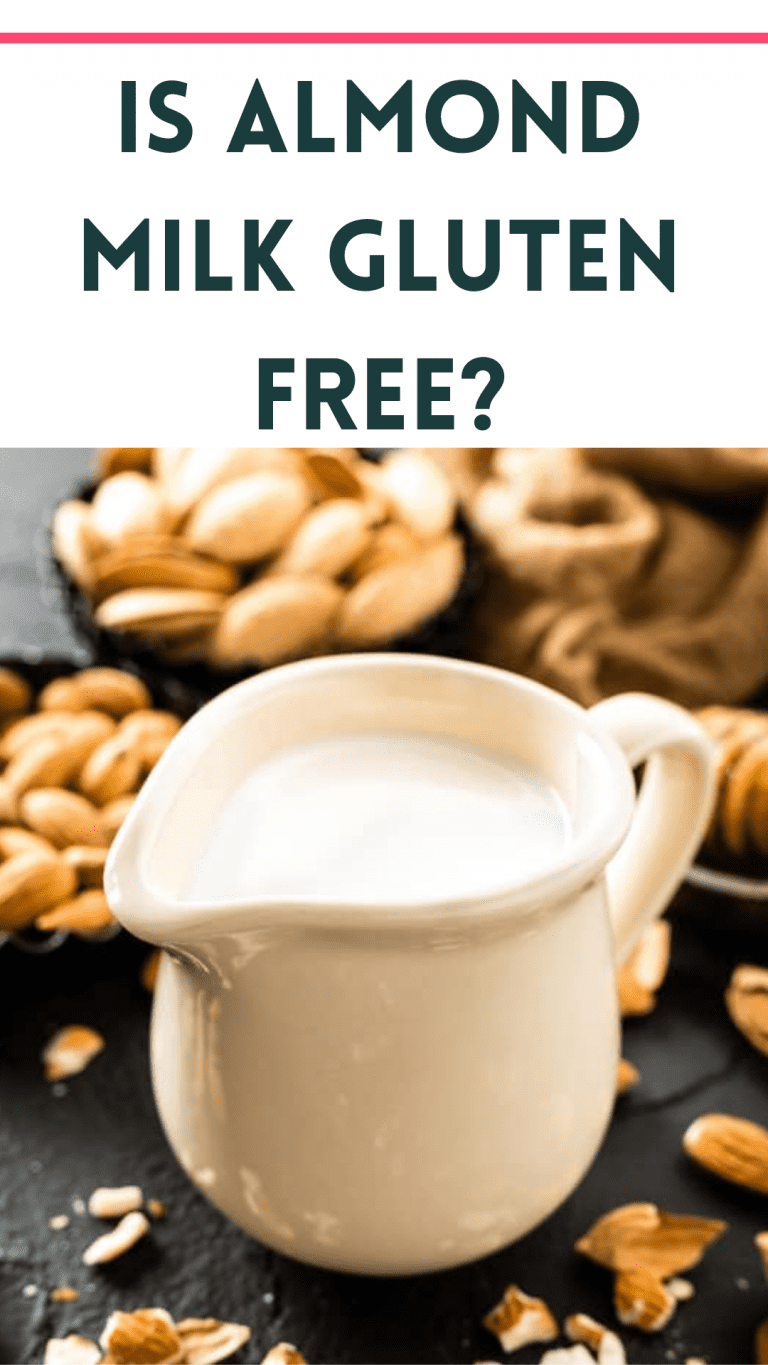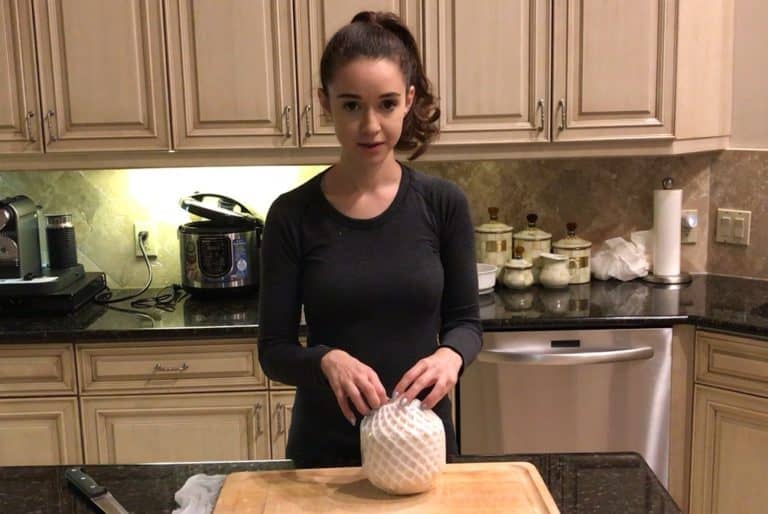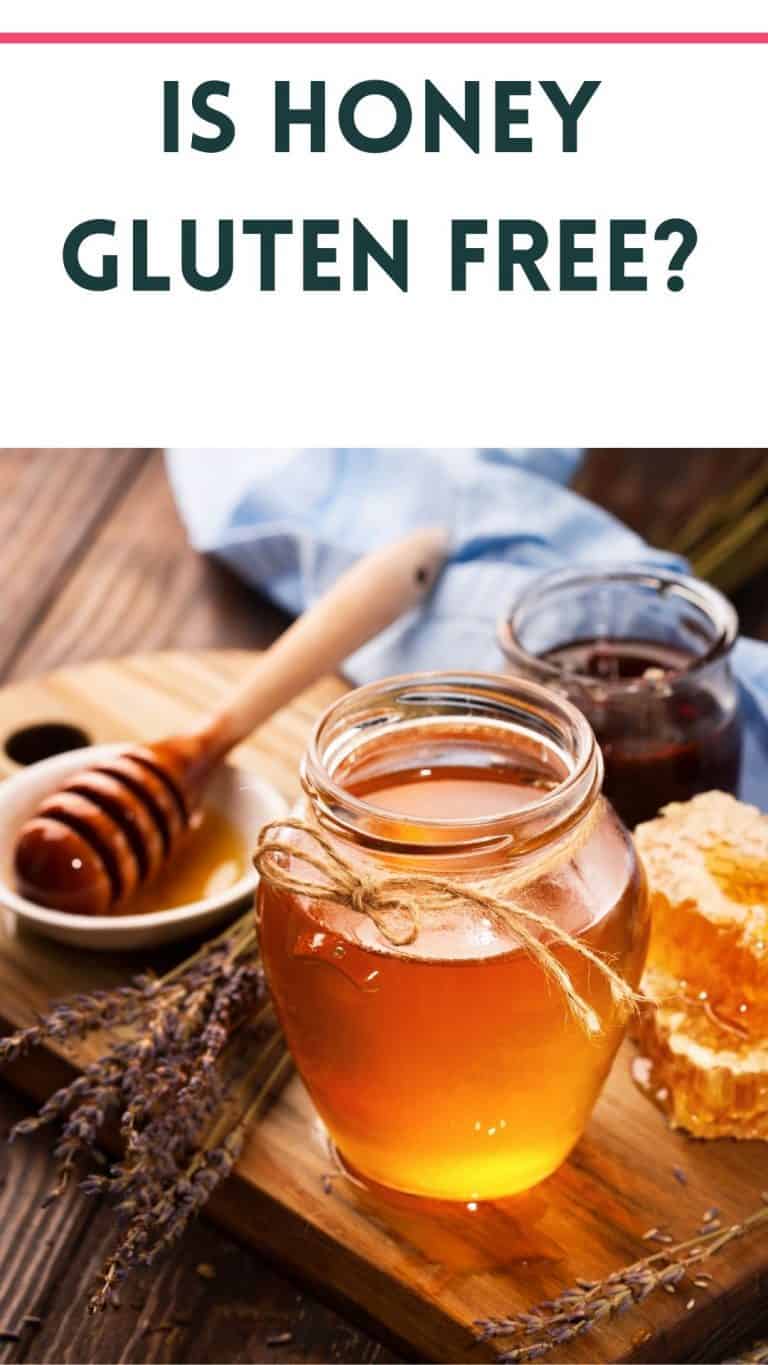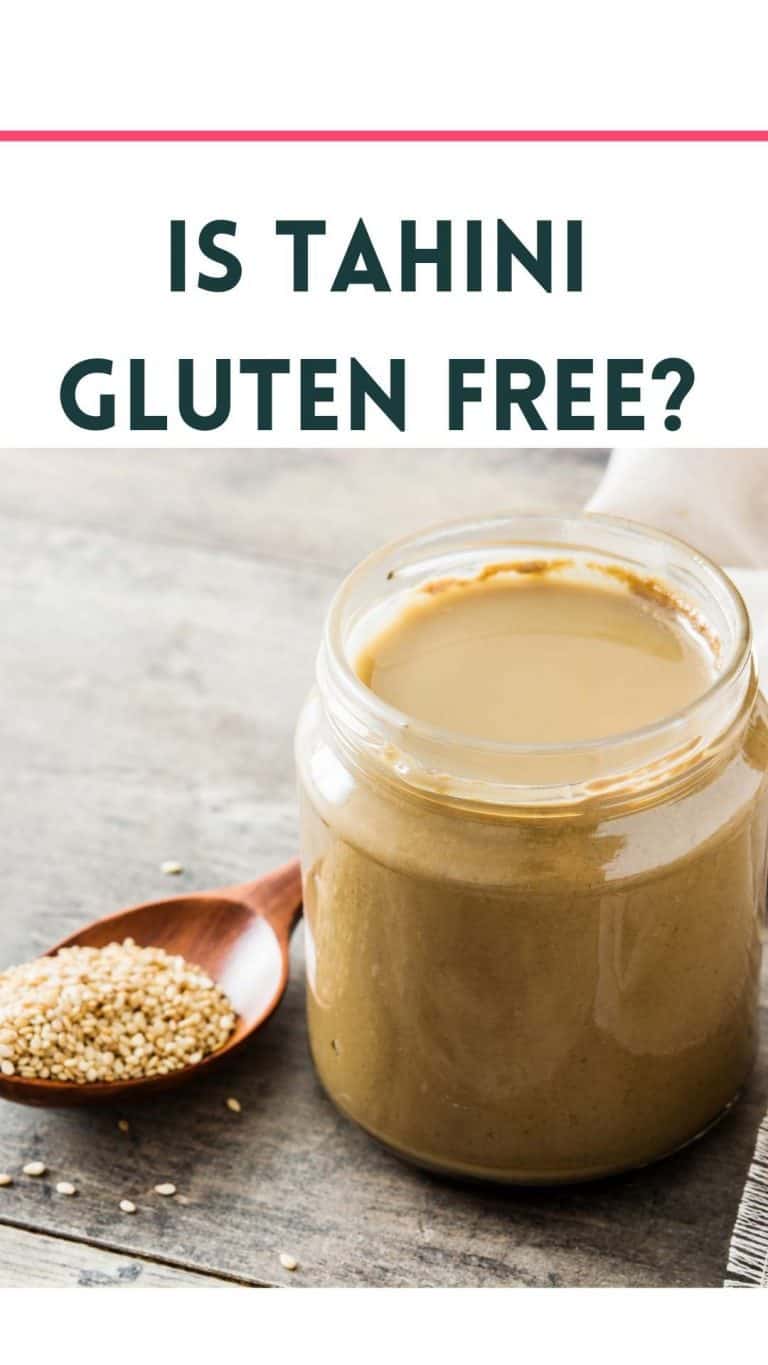Is Butter Gluten Free
Is Butter Gluten Free? Butter is the most popular condiment that people have been cooking with since the dawn of time. But so many people wonder, “Is Butter Gluten Free? ” If you’re on a gluten free diet, because you have Celiac or IBS you can be rest assured that you’ll know if butter has gluten or not after reading this quick article.

Is Butter Gluten Free?
The question reminds me of the famous line from Mean Girls when Regina George asks, “Is Butter a Carb?” But you wouldn’t believe how often I get asked this question by readers. The quick answer is, YES, PLAIN BUTTER IS GLUTEN FREE!
Now if that isn’t great news then I don’t know what is. I mean, most of us have been eating butter all of our lives. But if you’ve just started a gluten free diet that may have you questioning almost every ingredient you put in your mouth, then you now have an answer!
What Is Butter Made Of?
To understand why butter is gluten free we should take a look at what butter is, and what it’s made from. By definition butter is a pale yellow edible fatty substance made by churning cream and used as a spread or in cooking.
The only ingredient in butter is Cream. This cream typically comes from a cow but butter can be made from any animal that produces milk, including goat and sheep. The cream is churned until the butter fat separates from the butter milk.
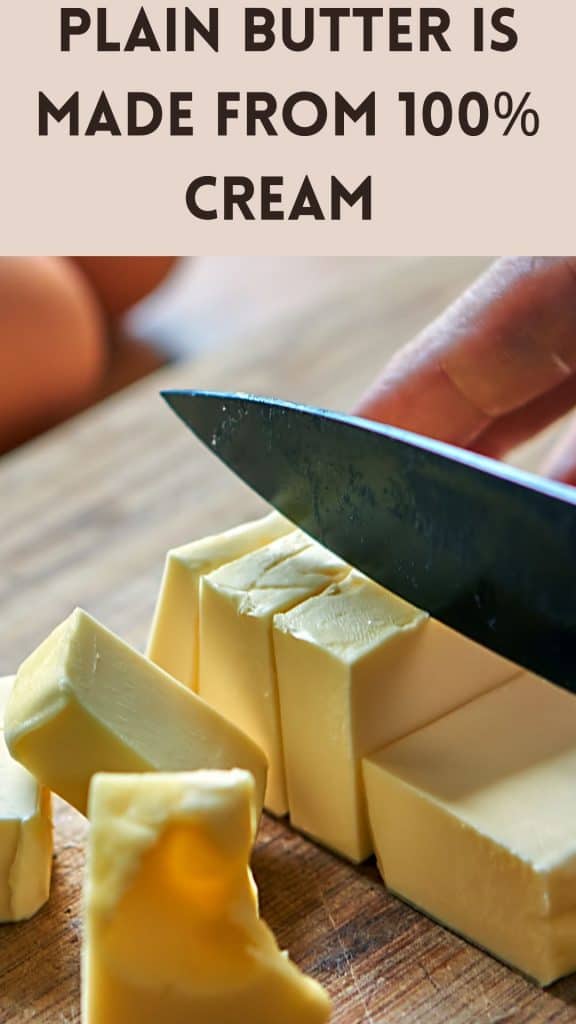
Not All Store Bought Butter is Gluten Free?
Now that we know that plain butter is gluten free (which is awesome) what about store bought butter? Most of us aren’t churning our own butter, we have to buy it from the supermarket!
This is where the waters get a bit choppy. Not all butter is gluten free because companies may put additives in their butter. Equally, they can be cross contaminated with other foods or ingredients made in the same facility. Don’t worry! Butter is considered a very LOW RISK food unless it’s flavored with something else.
So let’s take a look at what brands of butter are gluten free and healthy to use. I’ll also touch on healthy gluten free vegan brands of butter for those who are both on vegan and gluten free diets.
Again I just want to reiterate that butter is at a low risk of being cross contaminated with gluten. But if you’re on a very strict diet due to celiac, IBS or another autoimmune disease it’s best to stick to brands that are “Certified Gluten Free” by the the Gluten Intolerance Group’s Gluten-Free Certification Organization (GFCO), BRC Global Standards (BRCGS, formerly the Allergen Control Group), and NSF International.
- Smart Balance
- Earth Balance (Vegan)
- Organic Valley
- Land of Lakes
- Kerrygold
- 365 Organic Whole Foods Brand
- Thrive Organic Ghee
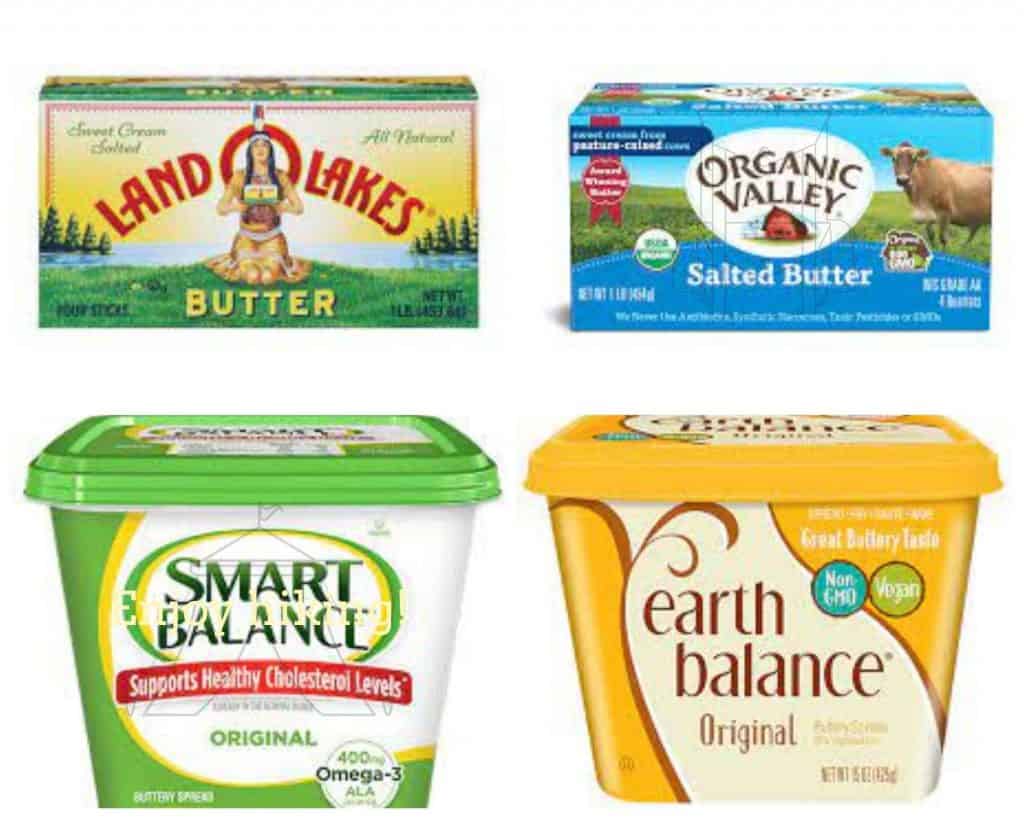

Gluten Free Vegan Butter Brands
- Nutiva Nurture Valley Vegan Ghee
- Kite Hill Vegan Butter
- Miykonos Vegan Cultured Butter
- Wild Creamery European Style Vegan Butter
- Country Crock Vegan Butter

Yes! Butter is O.K. for Celiac. If you have celiac disease you can still enjoy butter on your food since it is naturally gluten free. Butter is also considered very low risk for cross contamination. If you are very sensitive to trace amounts of gluten read above to check brands of regular and vegan butter that are gluten free.
Yes! Butter and eggs are both gluten free! Dairy and eggs are naturally gluten free since they are both an animal byproduct and are not derived from wheat. And the only ingredient in butter is cream and some salt. So butter is gluten free unless it has been combined with another ingredient that has gluten or have been cross contaminated in the fridge.
Eggs are also gluten free because they come from animals. So chicken, eggs, and duck eggs are gluten free. If you have celiac or are on a gluten free diet you can enjoy scrambled eggs.
Eggs could have gluten in them if they have another ingredient added. If you use egg beaters or any other egg products be sure to check the label to make sure they are gluten free and not processed in a factory that also makes products that contain gluten.
No, milk does not have gluten. All dairy products are gluten free unless they’ve been combined with another ingredient that has gluten or have been cross contaminated in the fridge. So if someone is very sensitive to trace amounts of gluten they should have their own butter dish to avoid cross contamination.
Keep in mind that I’m referring to traditional milk that comes from an animal. Animal products are naturally gluten free. However, various plant based milks like oat milk, almond and soy milk can be cross contaminated with gluten and are not gluten free. If you drink plant based milk make sure to check the label.
In the section below you’ll find a list of common additives that have gluten in them to look out for when you read the labels on vegan milk.
If you are gluten free you should avoid any foods that have wheat in them. Like bread, bagels, cereal, cakes, cookies and food that has soy sauce in it. If you would like to enjoy bread products make sure they’re gluten free. Here is a list of common grains that have gluten to avoid.
Grains that have Gluten
Here are typical food additives that can contain gluten to avoid…
No there is no gluten in plain butter. Butter is a dairy product that is made from 100% milk or cream. Milk and cream are both dairy products which are naturally gluten free since they are derived from animals and not wheat. The only reason there would be gluten in butter is if it has been added in in the form of another ingredient or preservative.
The butter could also be cross contaminated with butter if is in the same fridge. For instance if someone dipped a butter knife that had bread crumbs on it into the stick of butter that a whole family shares in the fridge, it will then have gluten.
Yes! Butter and Dairy are both gluten free! Dairy is naturally gluten free since it is an animal byproduct and doesn’t come from wheat. And the only ingredient in butter is cream and some salt. So butter and all dairy products are gluten free unless they’ve been combined with another ingredient that has gluten or have been cross contaminated in the fridge. So if someone is very sensitive to trace amounts of gluten they should have their own butter dish to avoid cross contamination.
No salted butter does not have gluten just like regular plain butter. Salt is added to plain butter to add flavor which is already gluten free. Since salt is naturally gluten free, salted butter (butter with salt added) is gluten free as well.
Typical Additives that Contain Gluten
- Wheat (bran, germ and starch)
- Malt (since it’s made from barley)
- Cracker Meal
- Soy Sauce
- Kinkel
- Vital Gluten
- Wheatgerm
- Sulfosccinate
- Seitan
- Rusk
- Teriyaki Sauce
- Durum
- Semolina
- Einkorn
- Emmer
- Farina triticale
- Farro or faro (spelt)
- Graham flour
- Hydrolyzed wheat protein
- Modified wheat starch
- Seitan
Grains That Contain Gluten
- Wheat (bran, starch, germ, berries)
- Barley
- Rye
- Couscous
- Triticale
- Bulgur
- Durum
- Kamut
- Graham
- Semolina
- Dextrin
- Farina
- Farro
- Oats
Oats don’t naturally contain gluten but are often cross contaminated with gluten. Certified Gluten Free Oats are the only kind that are guaranteed to be gluten free.
Is Butter Dairy Free?
Technically speaking Butter is made from a cow’s milk which is a dairy product. Since butter is derived from cow’s milk (which is dairy), butter is considered to be a dairy product. Therefore, if you’re on a diary-free diet or are trying to avoid dairy you should not eat regular butter. By regular butter I mean butter that is made from cow, sheep or goat milk.
However… There is such a thing as dairy free butter. Vegan butter is technically dairy free! Vegan butter can be made from many different ingredients. Usually vegan butter is made by taking oil and combining it with water. Typical types of oil used are.
- Avocado Oil
- Olive Oil
- Palm Kernel Oil
- Coconut Oil
- Vegetable Oil
- Canola Oil
- Soy Bean Oil
So while these oils vary in how healthy they are for you, they don’t contain dairy since by definition Vegan is a diet that is void of all animal products which naturally includes dairy.
If you’re looking for Dairy Free and Gluten Free Vegan Butter check the list above for my recommended brands!
What Types of Butter Should I Use?
Since I’m a Certified Health Supportive Chef who specializes in anti-inflammatory and gluten free recipes I have a strong opinion about which butter you should use. The butter that is the healthiest for you!
A lot of people say that butter is not good for you. But butter has quite a few vitamins in it and healthy fats. If you can get your hands on raw butter then you’ll also get tons of live enzymes that help your body break down the butter. The milk solids in butter are also easier to digest than oil since it isn’t as dense.
So believe it or not I would recommend regular butter that is made from dairy over vegan butter. But not all regular butter is created equal! Unfortunately dairy is polluted with antibiotics, preservatives and all sorts of other stuff we don’t want to consume.
Whenever you can, opt to buy organic butter. Even better you should always buy Organic UNSALTED Butter because regular butter contains a lot of sodium which is bad for your blood pressure, heart, and kidneys!
If you’re dairy free or vegan then you have to use vegan butter. You should use one that has the healthiest ingredients. Try to avoid butter that is made from unhealthy oils such as…
- Canola Oil
- Soy Bean Oil
Is Margarine Gluten Free?
Margarine is butter’s close relative. So naturally you may wonder if margarine is gluten free since butter is. The answer is yes margarine is gluten free! If you’re strictly avoiding gluten you can still have most brands of margarine.
But from a health perspective I would NOT recommend consuming margarine. Margarine is very unhealthy for multiple reasons but the most important one is that it is high in trans fats and hydrogenated vegetable oils which contain trans fat.
Trans fat is bad for you because it raises LDL (bad cholesterol) and lowers your HDL (good cholesterol). This makes your blood platelets stickier and damages the inside of your blood vessels. Which increases your risk of heart disease, high blood pressure, heart attacks and strokes!
So when someone passes you the margarine just say NO THANK YOU! you should always opt out of margarine and have real unsalted organic butter or a healthy vegan butter instead.
Gluten Free Recipes with Butter to Try
- Gluten Free Tomato Soup
- Gluten Free Stuffed Spaghetti Squash
- GF Garlic Butter Brussels sprouts
- Gluten Free Baked Eggplant Parmesan without Breadcrumbs
Gluten free vegan butter brands google web story!

FREE 7 Day Gluten Free Meal Plan
A meal plan designed to jump start whole body healing and support digestive health……
…And get the latest recipes!

